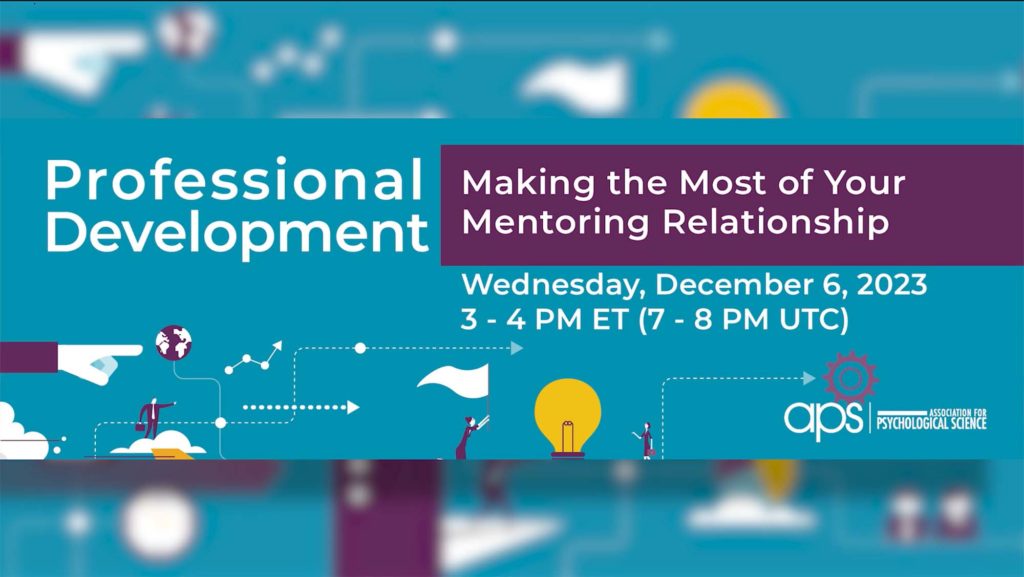Professional Development Workshop: The Keys to a Successful Mentoring Relationship

Bria Gresham believes research is not the sole marker of a successful graduate school experience. A doctoral candidate in developmental psychology at the University of Minnesota, Gresham asserts that selecting the right mentor is also vitally important.
“Yes, you want to be doing research that you care about, but I think identifying a mentor who is kind and supportive and aligns with your personal and professional goals is far more important for success in graduate school and in the transition to graduate school as well,” Gresham, President of the APS Student Caucus (APSSC) Executive Board, said during a Dec. 6 APS Professional Development webinar, “Making the Most Out of Your Mentoring Relationship.”
Also participating in the webinar was APS Fellow James Gross, who studies emotion regulation at Stanford University and is a recipient of the 2024 APS Mentor Award. Gross noted that the relationship between the mentor (someone in a senior position) and mentee (which could be student or junior faculty) must be intentional. He and Gresham agreed that setting clear, mutual expectations on the working relationship, engaging in clear and open communication, and maintaining a flexible focus on the mentee’s evolving career goals are vital components of the relationship.
APS is fostering these relationships through its Mentorship Program, which matches students with volunteer mentors who can help hone professional skills, build a network, and identify career opportunities, said Özge G. Fischer-Baum, APS Director of Scientific and Public Affairs and host of the webinar. As of early December, the program—an APS member benefit—had generated more than 34 mentor-mentee pairs.
A recording of the webinar is available to all attendees and APS members.
The workshop is available to APS members and registered workshop attendees.





APS regularly opens certain online articles for discussion on our website. Effective February 2021, you must be a logged-in APS member to post comments. By posting a comment, you agree to our Community Guidelines and the display of your profile information, including your name and affiliation. Any opinions, findings, conclusions, or recommendations present in article comments are those of the writers and do not necessarily reflect the views of APS or the article’s author. For more information, please see our Community Guidelines.
Please login with your APS account to comment.